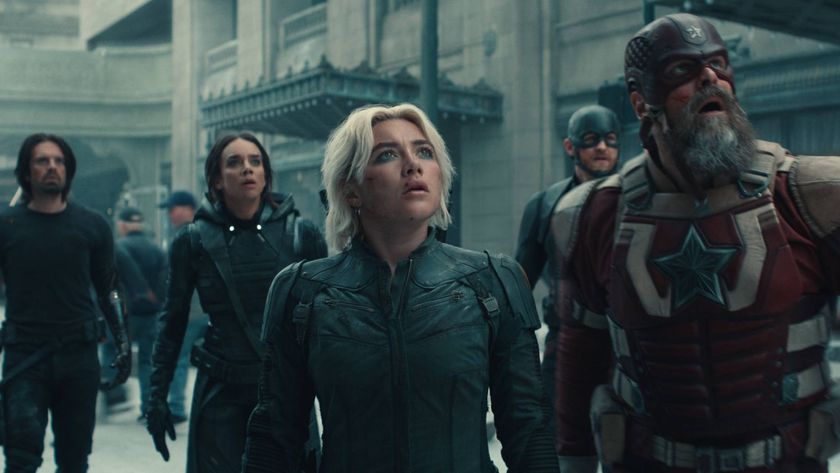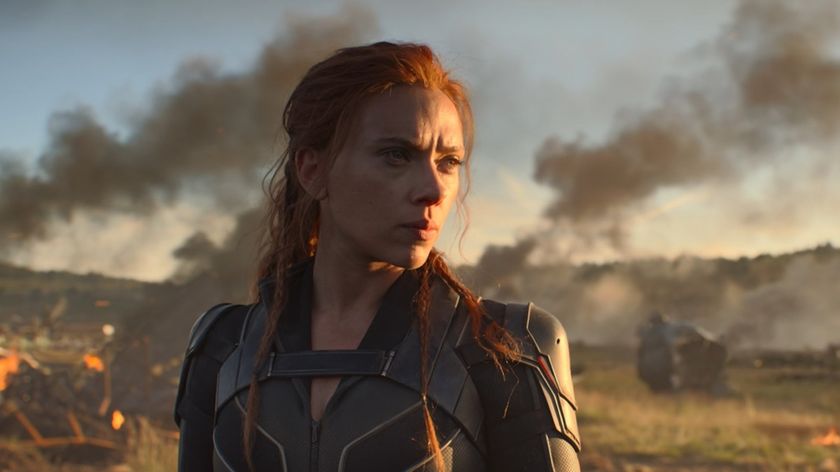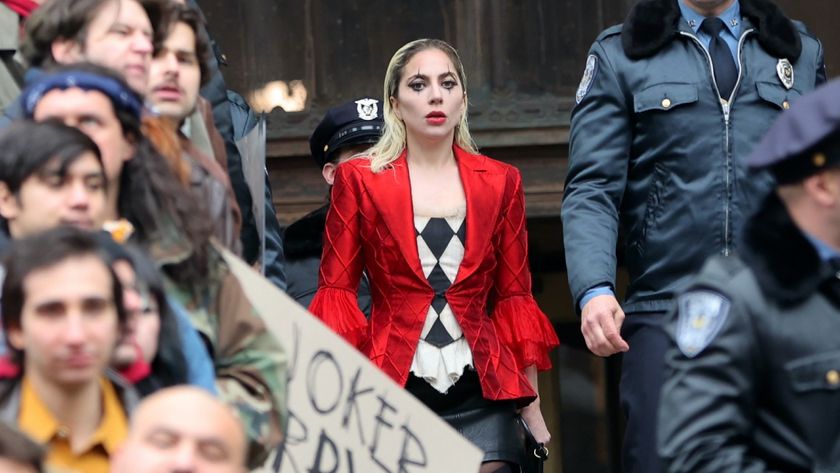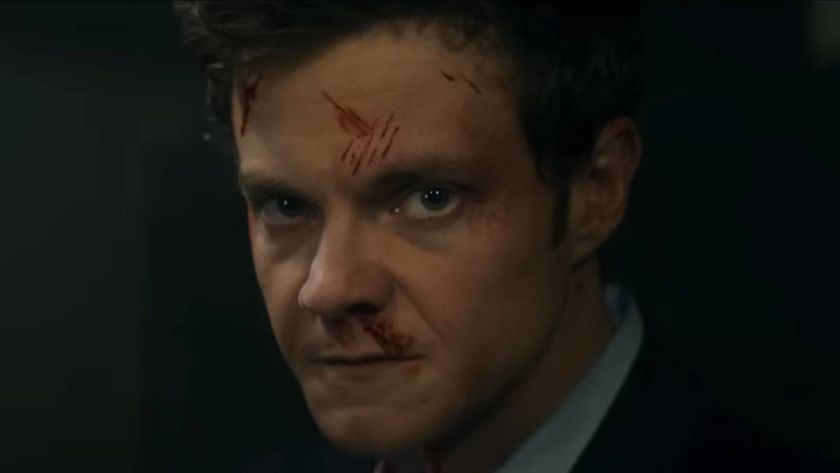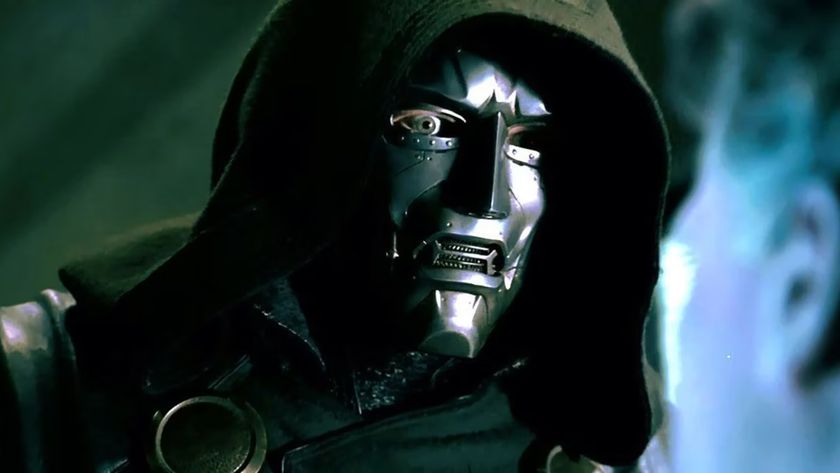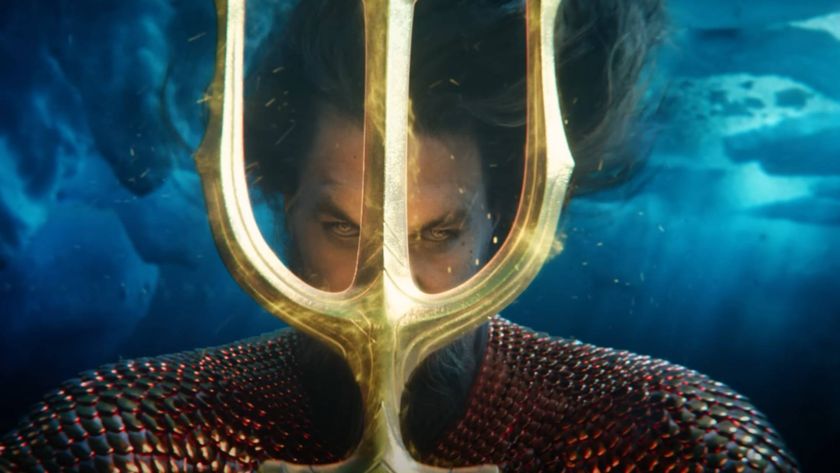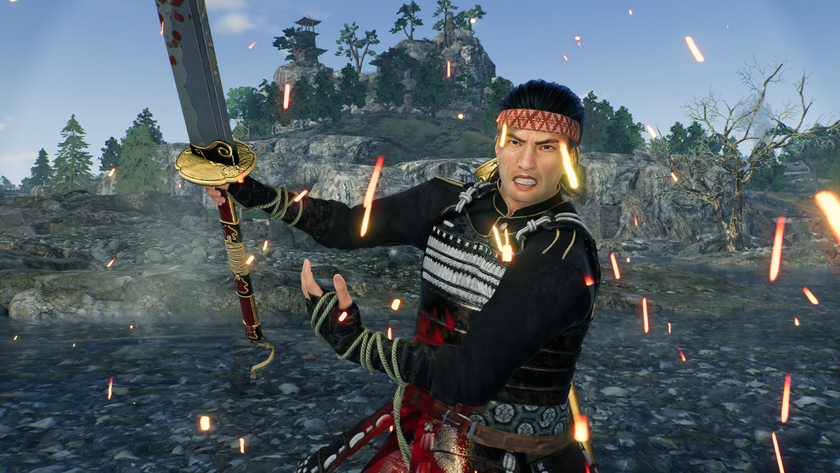Seth Rogen interview: "If you're going to make a huge comedy, your competition is Marvel"
12DOVE meets Seth Rogen to talk about his new movie An American Pickle
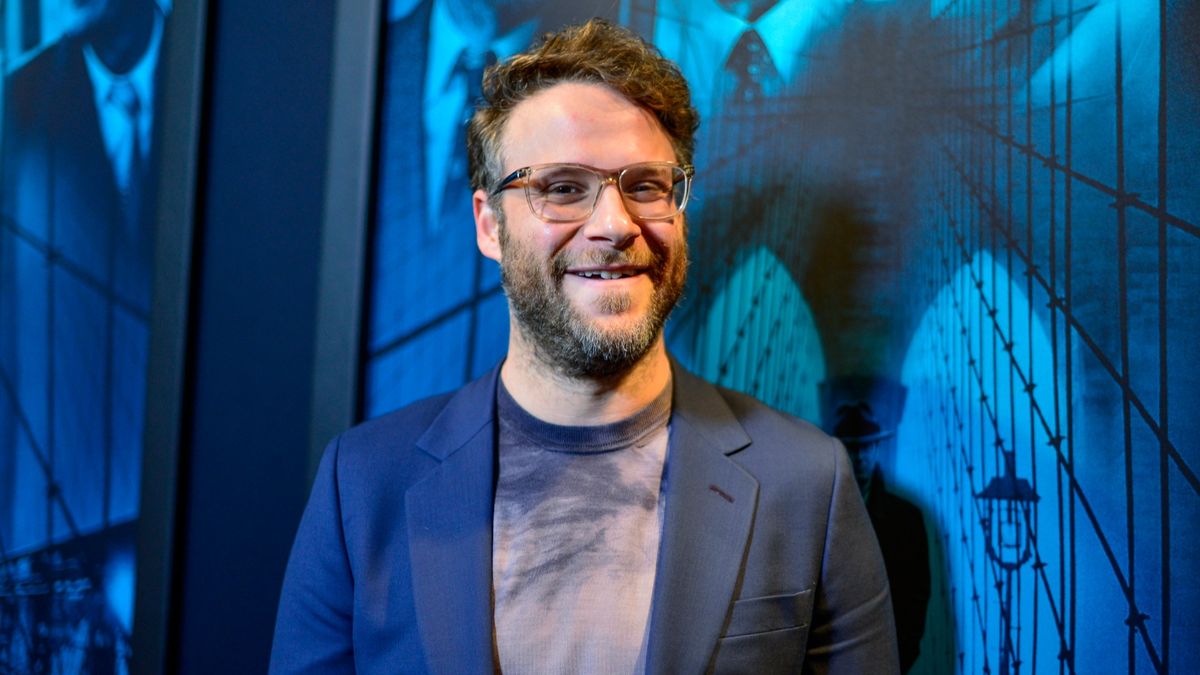
Seth Rogen's laugh has become as ubiquitous as some of the actor/writer/producer's work. That deep, inward "he-he-he-he" has been turned in a meme, with one video montages of Rogen laughing for 30 seconds non-stop being viewed over 500,000 times. It is, therefore, a pleasure to report that even during a normal-ish conversation Rogen laughs that same laugh a lot. A lotta lot.
To promote An American Pickle – which sees Rogen play dual roles as Brooklyn app-maker Ben Greenbaum and his great-grandpa Herschel Greenbaum, a man who has been "frozen" in pickle brine for 100 years – the star sat down with 12DOVE over Zoom to briefly talk about the new release and comedy movies in general. Here's our Q&A, edited for brevity.
GR+: Hi Seth!
Seth Rogen: Hi. You have the most depressing background yet. [Starts laughing a very Seth Rogen laugh]
Listen, when I have the camera at my desk you just see a huge empty room.
So you've chosen for the corner?
I feel like I should change my background.
Sign up for the Total Film Newsletter
Bringing all the latest movie news, features, and reviews to your inbox
Please don't, I don't want you to take it personally!
Is that better? [GR+ changes Zoom background to The Shining corridor]
Yes, perfect! Thank you!
Slightly more creepy, but...
Weirdly, somehow this is less creepy. [Seth Rogen's laugh intensifies]
Well, thanks for talking to me about this film. It's a lot of fun, but I was also surprised that a film about a man who has been in pickle brine for 100 years is so much about grief and someone coming to terms with their religion. It feels like your movies are maturing and have more of a message in recent years. So what's changed in your approach to making movies?
I guess as we – and I say we a lot to refer to me and my team of collaborators – as we get older, what's interesting is that I am in a lot of our films. I'm not in all of them, but I'm in a lot of them. And by the nature of that, we often make movies about people who are my age and I have gotten 15 years older since we started making films. Some of the themes have aged in some of our movies. What's nice is we're still making movies like Good Boys and Blockers, so we are able to explore themes that are younger and not as dark as we have become. But it's something we have always tried to do. Superbad, at its time, the fact that it was a high school movie with any real attempt at an emotional core was not that practised at that time. The fact Pineapple Express had any story about real friendship and dynamic was us really playing with the modulation of how much personal story can we put into these films and have a message.
[An American Pickle] was, in the end, the first insane swing at it. The same with Sausage Party. There are big huge themes about morality, religion, and they could not be dressed in a more insane package. Things like Long Shot and The Disaster Artist, they are films we have modulated more towards the emotional side while trying not to abandon the comedic, but that ebbs and flows.
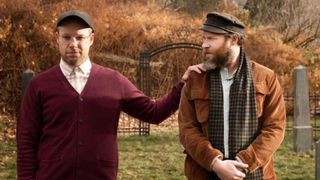
It's an interesting time for comedy movies. Irresistible, The King of Staten Island, The Lovebirds, and American Pickle [coming to cinemas in the UK, streaming on HBO Max in the US] have all gone to streaming in the pandemic. Yet other blockbusters are being delayed. What's your view on the state of comedy movies at the moment? Are we going to see them keep going to streamers or is there a place for them still in cinemas?
What's funny is, I've been told for the last 10 years that mid-size comedies are dying. Yet, throughout that time, luckily we've been able to release enough mid-size comedies that have done well that they keep allowing us to make them. Movies like Sausage Party and Blockers have managed to do really, really well, even though they're the exact type of thing that people say doesn't do that well. But then every once in a while we'll have a Neighbours that does really, really, really well. It allows us to keep making them.
That being said, something that me and [producing partner] Evan [Goldberg] talk about a lot is how Marvel movies are comedies. Thor: Ragnarok is a comedy. Ant-Man is a comedy at its core. So that's what's out there. There are $200 million comedies out there, and so that's something, as a comedic filmmaker, to be aware of. That is the benchmark that people expect! If you're going to make a big huge comedy, just know that your competition is like Marvel. Not to say you should not make those types of films, but know that's what audiences are seeing, and that, when you see those movies in theatres, they are playing like comedies. They are legitimately funny and star comedy stars.
That's something we talk about a lot – just to be aware of as filmmakers. These huge budget films function like comedies. Audiences still love comedy, and they want that – Deadpool – but the scope of them is huge. So when you're not offering them that scope, you have to think, 'What am I offering them?' That's why something like Good Boys does well, because we're not offering scope. What we're offering is pure comedy and emotion and relatability and nostalgia. That's the trade-off. You don't get to see the God of Thunder being hilarious, but you get to see something that maybe represents your actual life, and that's very gratifying in another way.
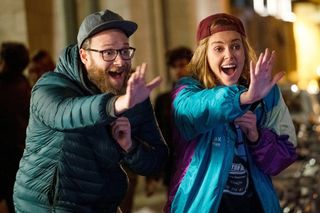
One project you have a hand in that's very much like those films is The Boys [Rogen produces the superhero show]. You recently announced at Comic-Con that there'll be a season 3, so I'm wondering if you have a plan for a set number of seasons of The Boys? Or is it seeing how it rolls?
Sorry, a giant deer just ran past my house. Wait, say that again, I got heavily distracted! [Another very Seth Rogen laugh]
No worries! Do you have an endgame in mind for The Boys?
[Showrunner] Erik [Kripke] does have an ending in mind that he likes and is working towards. But I do also know how fluid these things are. I know some of my favourite shows were not plotted out incredibly specifically, but, to my knowledge, he has an endgame in sight and an ideal number of seasons in his head. But again, these things change, and I've literally been in the writers' room where someone says something and you go, "Oh no, maybe we need two more seasons to do this idea we all like!" But he's been very deliberate in the plotting out of the show, and we talk so much about a crowd-pleasing experience with the show and making our TV equivalent of a fun, edgy blockbuster. So we've been very aware of making sure people are super happy with what's happening and not disappointed with how it all goes down.
And I've been told to wrap this, so my last question is a basic one: you play against yourself in An American Pickle, so I'm wondering which part was the hardest bit to film?
Any two-shot, basically, where there's a lot of interaction between the characters. Especially because they were just yelling at each other, and the timing – without cutting you see us both in the frame, so the goal was to make it seem as naturalistic as possible, but in order to do that we had to be surgically specific with the timing and what was being said. Honestly, some of those conversations where we were just talking were the hardest because of the eyelines and Herschel's pacing back and forth and Ben's sitting there. It seems so off the cuff. But that was incredibly hard to do.
I bet. Thanks, Seth! Sorry about the creepy background.
No, I love it!
An American Pickle is available now in the US on HBO Max and in UK cinemas.

Jack Shepherd is the former Senior Entertainment Editor of GamesRadar. Jack used to work at The Independent as a general culture writer before specializing in TV and film for the likes of GR+, Total Film, SFX, and others. You can now find Jack working as a freelance journalist and editor.
